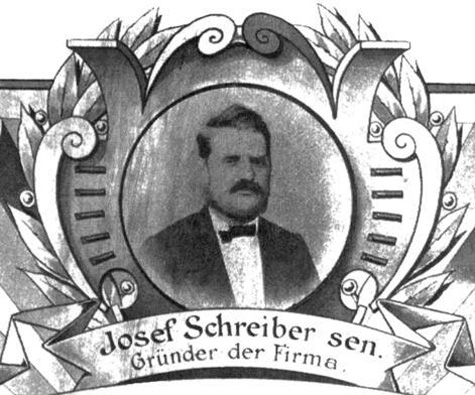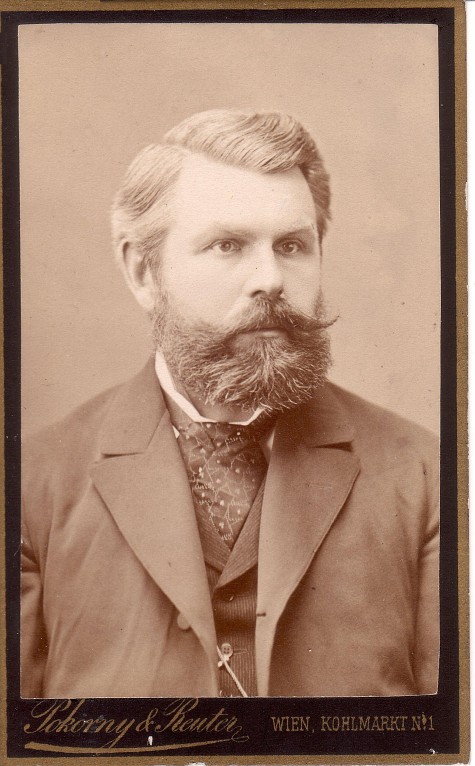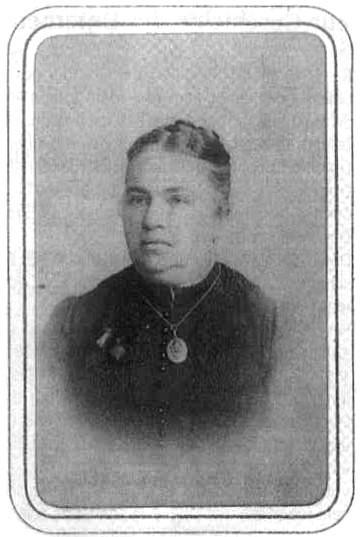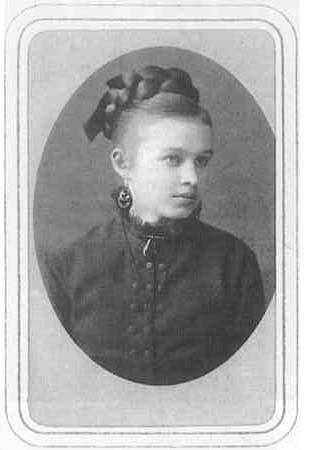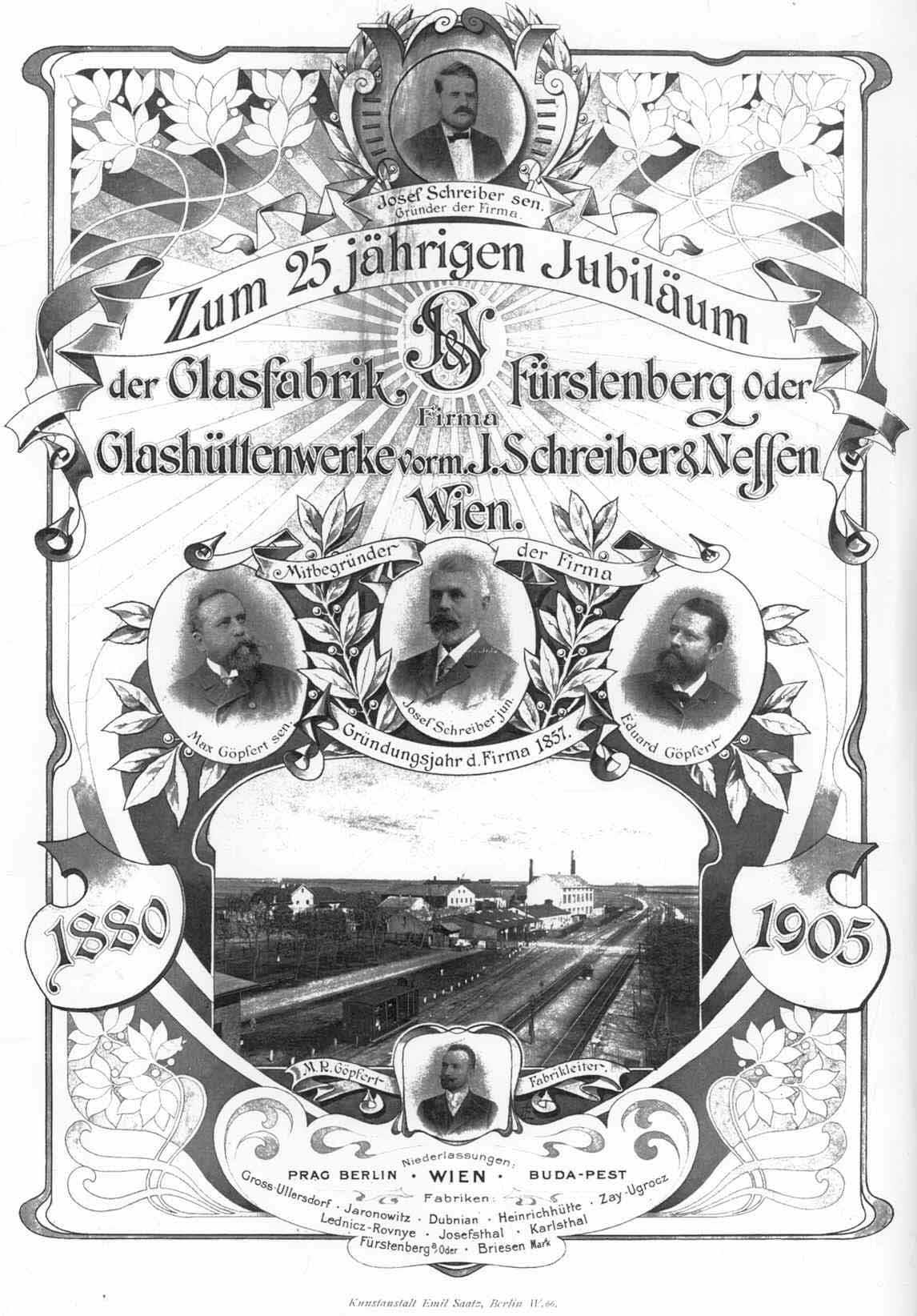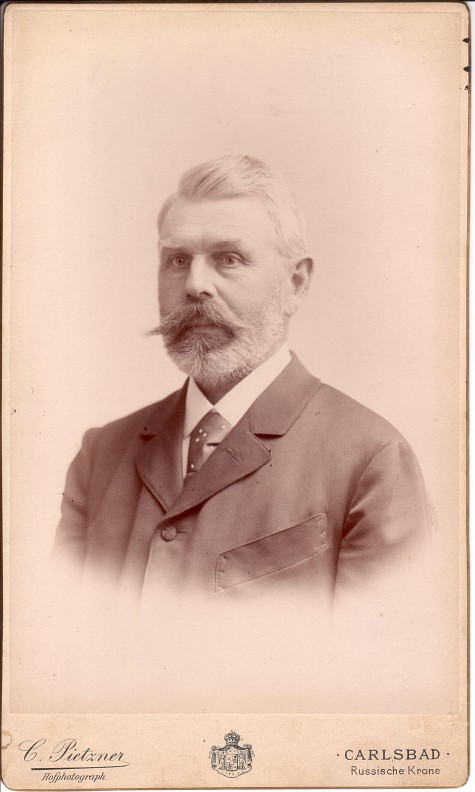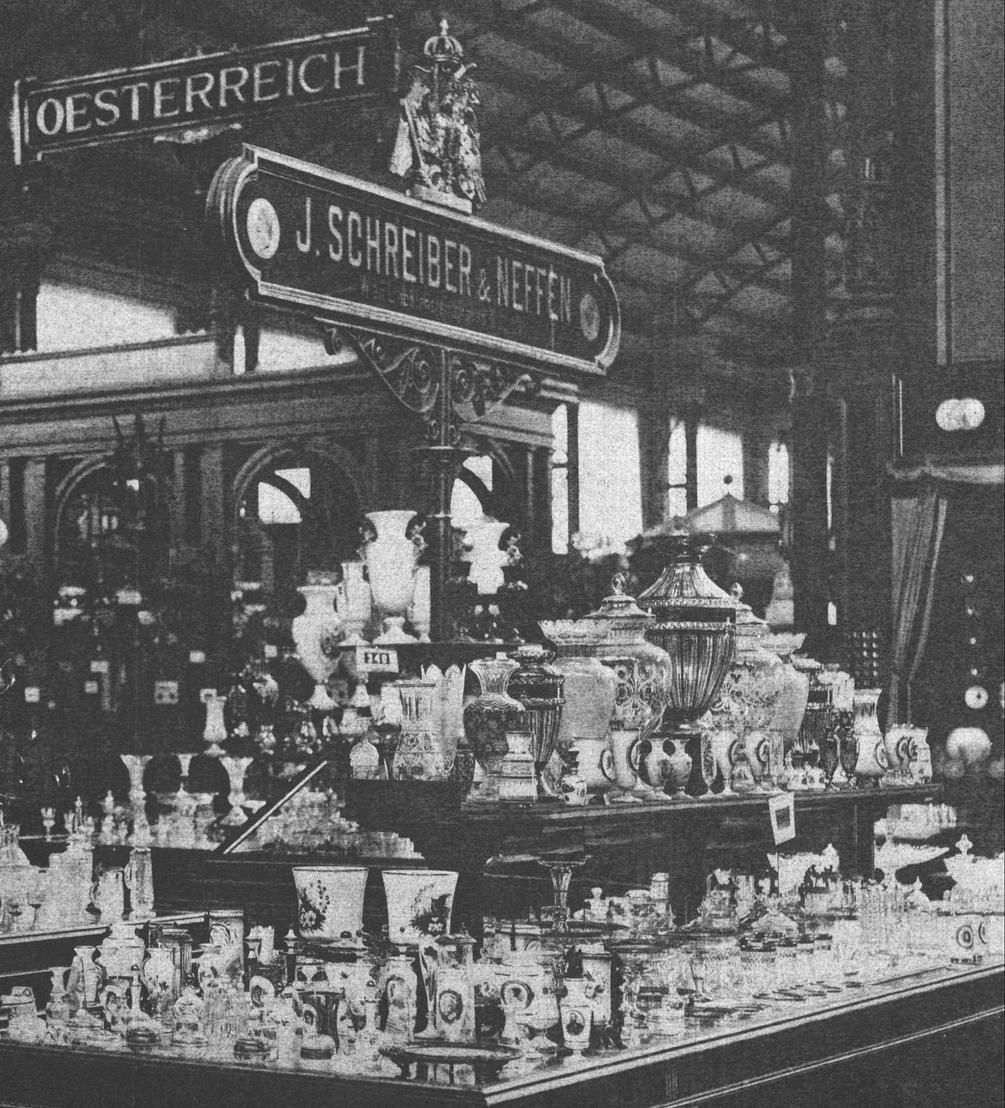CAESAR CRYSTAL BOHEMIAE, a.s. is a continuation of the quality glass manufacturing tradition of the Josefodol glassworks, which was established in 1861 by Viennese businessman Josef Schreiber. The factory is located in the charming valley of the Sázavka river and Zbožský stream near to town of Světlá nad Sázavou in the Bohemian and Moravian highlands.
The tradition of glass production in Bohemia started much earlier. Chech glasswork experienced tremendous growth in the second half of 17th century when Czech glass started its relentless pressure to compete with products made in Venice. The competition lasted for almost two centuries until the Czech crystal finally won, in large part due to the fine craftspeople grinding, engraving, cutting and painting. By 1740 there were more than 70 glassworks in Bohemia along with many more establishments cutting and refining the finished product.
The beginnings of glassmaking in the vicinity of Světlá nad Sázavou
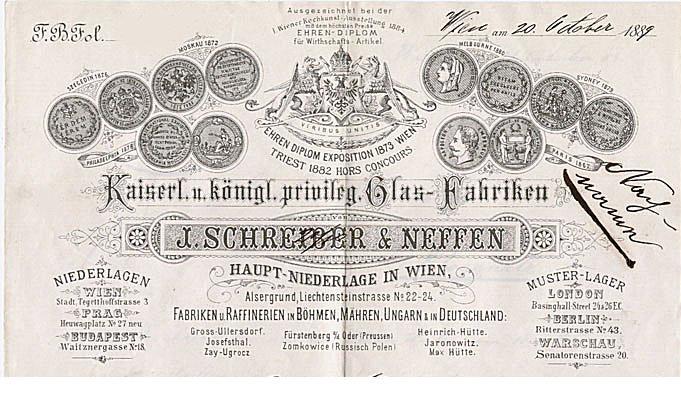
The historicaly oldest documented glassworks in Světlá was Hoglova glassworks, established somewhere around 1700-1712, later known and famous under the name Dobrá Voda (Guttenbrunn). It was located only 4 kilometers from nowadays CAESAR CRYSTAL BOHEMIAE glassworks in Josefodol forest. The glassworks were built by thef lords or glass-masters on the noble estates, where the woods provide enough wood to heat the kilns and a sources of quartz could be found in the limestones. Most of these glassworks had relatively short lifespan because they would exhaust the local wood supply as well as potash. As a result, the glassmakers and thier families would move to newly established glassworks in an area with an abundance of the necessary raw materials.
The products of Loukovská glassworks, still located on the Melechov hillside in the Rohule region, were known for thier very high quality. In the middlr of the 19th century, under the direction of glass-master Fratišek Gerhardt time, the Loukov glass was being sold to Vienna to Schreiber´s store (Josef Schreiber Sr. - 4.13.1819 Dub nad Moravou. - 14. August 1879 Baden).
Founding of a glass factory in Josefodol
Schreiber´s nephew Josef(*3.8.1835 Dub nad Moravou +11.17.1902 Velké Losiny) often traveled to Bohemia on business to buy glass from several glassworks. During that he often visited Světlá and Rohule, to buy glass from Gerhardt. It is possible that he was also drawn by Gerhardt´s beautiful daughter Tereza (*8.10.1842 Palčice +12.30.1932 Rapotín) who he later married. Then Schreiber bought bankrupted paper-mill from nobleman Štencl, which he rebuilded to cutting place in 1861 where he launched the production. Glassworks started to melt glass in 1882. It was the first glassworks established by Schreiber, under the named of „Josefsthal“ – Josefodol. There was produced primarily glass intended for cutting, besides other kinds, for example glass for lights and also opaline and cased glass.
Josef and Tereza had 7 children. One of their daughter, Antonie Schreiber married Franz Welz (*8.13.1850 +11.16.1924), whose family owned one of the oldest glassworks in Dobrá Voda that was established more than 300 years ago. Franz Welz was the grandson of Josef Riedl, the owner of glassworks in the village of Polubná (Polaun) in Desná in Jizera mountains. The history of Josefodol glassworks is directly associated with Riedel Glass Works, that is known world-wide as a glass producer, including brands Nachtmann and Spiegelau.
In 1880 Josef Schreiber senior establishes the Schreiber & Neffen (translation: J Schreiber & Nephews), which includes his other glassworks. In 1882 J. Schreiber employed about 2000 workers and approximately 100 managers. The Company catalogue included about 3,000 shapes in 15 000 sizes. When Schreiber died, he had 13 glassworks in operation. To develop his glassworks J. Schreiber distributed his experts from Světlá everywhere and their descendants remain there to this day.
The development of the glassworks at the turn of the 19th and 20th centuries
In 1870 J.Schreiber attended an exhibition in St. Louis in America, where he saw a new machine called pantograph that he bought and moved to Bohemia, He then built 20 more of these machines and became the only one in Europe producing pantograf stemware. In St. Louis he also bought the first pressing machine and then built several more and became the first one in Europe producing pressed glass.
Except for one sale to the whole Austria-Hungary onarchy the products were exported from Josefodol to America, Great Britain, Germany, the Netherlands, Italy, Romania, Serbia, Russia, Turkey and India.
The fame of J. Schreiber & Neffen is linked to the destiny of the Austria-Hungary monarchy destiny, the world war I. and the collapse of Austria-Hungary monarchy causes market losses and the decline of the J. Schreiber & Neffen Co. After declaration of independence of Czechoslovakia in October 28, 1918 the Josefodol glassworks became prominent.
We cannot forget a world renowned personality in glasswork, Ing. Karel (Charles) Bačík, known as Charles Bacik in the world (http://en.wikipedia.org/wiki/Charles_Bacik), who is the founder of Waterford Crystal glassworks in Ireland.
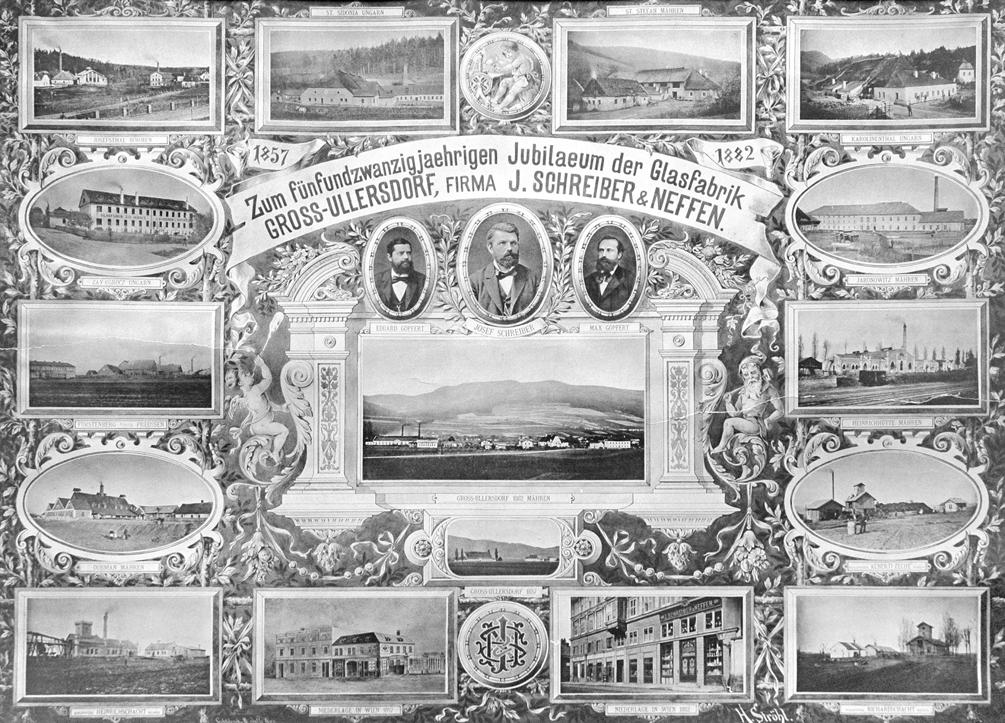 Charles Bacik worked in Josefodol glassworks as a head manager of the company before world war II. On December 15, 1937 the Josefodol glassworks industry came to an end and was eventually liquidated. Then brothers Čeněk and František from Pavlov bought the company. To Josefodol plant belonged Františkodol, Tasice, Pavlov. Ing. Karel Bačík (Charles Bacik) bought the company in liquidation. There arises a new company Glassworks and cutting plants Caesar brothers and cutting plants Josefodol. After the end of World War II the glassworks was confiscated "nationalized" from the Caesar brothers and Karel Bačík.
Charles Bacik worked in Josefodol glassworks as a head manager of the company before world war II. On December 15, 1937 the Josefodol glassworks industry came to an end and was eventually liquidated. Then brothers Čeněk and František from Pavlov bought the company. To Josefodol plant belonged Františkodol, Tasice, Pavlov. Ing. Karel Bačík (Charles Bacik) bought the company in liquidation. There arises a new company Glassworks and cutting plants Caesar brothers and cutting plants Josefodol. After the end of World War II the glassworks was confiscated "nationalized" from the Caesar brothers and Karel Bačík.
Karel Bačík left to Ireland where his experience at Josefodol and other glassworks in Světlá and with the help of his czech glass designer Miroslav Havel, who worked for him in Světlá, helped him create Waterford Crystal glassworks. The world renowned Lismore design from the Worldford glassworks was designed by Miroslav Havel.
After the company nationalized in favour of the state of Bohemia it was eventually privatized again in 1994 and renamed to CAESAR CRYSTAL by the present owners to recognize the heritage of the last private owners of glassworks, the Císař (Caesar) brothers.
Today, CAESAR CRYSTAL glassworks in Josefodol is a 100% Czech company.
Gallery of glassworks history
|
Josef Schreiber senior (*1819 +1879) |
Josef Schreiber junior in 1888 (*1835 +1902) |
|
Terezie Schreiber (Gerhardt) (*1842 +1932) |
Antonie Schreiber (*1859 +1928) |
|
Commemorative certificate |
Josef Schreiber in 1894 |
|
Wien 1873 The world exhibition (Weltausstellung) – An exhibition stand of company (Stand der Firma) |
